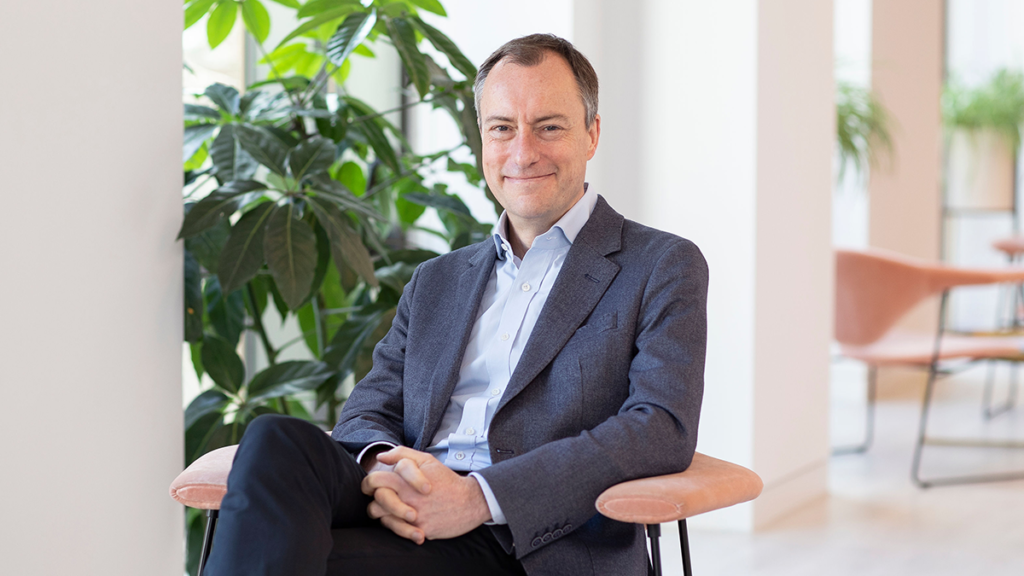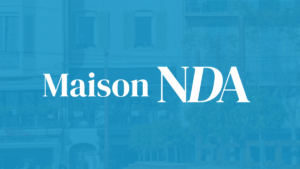As the coronavirus pandemic has quickly become the new normal, NDA wants to celebrate the positives of our current situation.
We talked to James Wildman, CEO, Hearst UK |President, Hearst Europe to find out what he thought we should be cheerful about.
What, if any, positive long-term impact on the media industry will coronavirus have?
Right now, and at an industry level, it’s difficult to imagine many positive outcomes from an economic perspective as the scale of the immediate downturn will likely mean casualties across all sectors.
However, a very positive outcome will be a greater premium being applied to premium, engaging and positive media content from trusted brands. Also, I think there will be greater emphasis generally placed on creativity, mutual benefit and collaboration.
The coronavirus will speed up digital acceleration generally and place greater emphasis on ecommerce, a significant opportunity for those media owners who can pivot effectively to support advertisers’ changing priorities.
What positive impacts on long-term consumer behaviour shifts will it have?
Whilst the virus is devastating on a human, social and economic level, it will undoubtedly have a positive impact on how people will behave in the future.
Our work at Hearst, where we talk to over 60k people on our panel every day, suggests that consumers are re-appraising their lives and planning for a different future. Of course, there will be changes based on hard economic factors and also on how people will want to work at home more, buy more online and prioritise their health more, but we can also expect to see changes in many other areas.
Interestingly, last year, before the virus hit us, 69% of Hearst consumers had a positive outlook on life and when the virus hit us and the lockdown started this dropped to 64%. However, this has now increased to 74% as people envisage a brighter future and this is a fascinating insight.
Through reappraisal and valuing life’s ‘basics’ so much more (family, friends, food, our health, etc), consumers are likely to be less frivolous and less materialistic.
Yes, we will go on holiday again, go to events and go out to socialise (albeit with caution initially), but we will also cook at home more, spend more time with family, think about our mental and physical well-being more, take more pride in our homes, do more in the community and be kinder to ourselves.
We think consumers will become happier and slow down a little and we will also expect brands to change: To have a greater purpose, to care more, to be more altruistic, to be virtual.
And our media habits will also change: We are watching more TV but we’re also buying more books, listening to more podcasts and, would you believe it, reading more magazines, with 29% of UK adults claiming to be reading more magazine content than before (Source: Havas).
Media will of course continue to entertain and inform us, but, as we are seeing through this crisis, it will be used much more as a source of inspiration and advice as we seek to learn more and take more positive action. Media brands that are a force for good and that help consumers to get more out of life will become more important.
Just as our Hearst audience have a more positive outlook on life, so do we at Hearst. Our content may be consumed in slightly different ways, but the value of it will increase for sure.
What positive impacts have you seen on how your business operates?
I tend to see the positive in most things, but the current situation would test the most optimistic Pollyanna and the challenges that all media businesses are confronting right now are clearly extraordinary.
However, there are very many positives to be taken from how brilliantly our people have adjusted to remote working and how our trusted media brands have continued to produce engaging, positive content without missing a beat.
I’m in awe of the ingenuity and resourcefulness of our teams and immensely proud of how we’ve become more creative generally across the business. I believe we’re operating more collaboratively, both within the business and as we strive to support our commercial customers in their hour of need.
Similarly, our positioning as the beacon of positivity in a negative media world could not be more apposite right now and our purpose – ‘to get more out of life’ – is continuing to inform all that we’re achieving.
Our sense of togetherness is empowering, and I’m delighted that we’ve been able to adapt so quickly.
What have you been most heartened about in how your staff, partners, customers or clients have reacted to the new normal?
In terms of my fabulous colleagues, I couldn’t be more impressed or proud. Whilst the significant cultural transformation we’ve been driving to become more future-facing, adaptable, tech-enabled and agile has meant we were well placed to adjust successfully, the way the company has embraced the challenges has been remarkable.
For our tens of millions of engaged consumers, we’ve switched signature live events to successful virtual iterations and our brand teams have continued to delight, producing amazing, overwhelmingly positive content from at-home fitness workouts and fun recipes, to helpful advice from experts around the globe.
And, for our commercial customers, we’ve innovated to deliver value; for example launching our home-working ‘Creator Network’ that comprises photographers, videographers, illustrators and animators, all combining virtually to ensure our brilliant Creative Solutions service can continue despite these challenging conditions.
In terms of our commercial partners, we’ve been heartened by the support we’ve received and the collaborative nature of the conversations we’re having. There’s a clear sense of us all being in this together and I believe the deep partnerships being forged currently will deliver significant mutual benefit in the future.
We are seeing greater creativity and proactivity on the buy-side and this is energising for our commercial teams.
What technologies have you been most impressed with during this new situation?
Clearly any and all technologies that are advancing our medical capabilities and saving lives.
And at work, we have become very familiar with VC tools such as Zoom and (personal favourite) Teams etc and some days it feels like we do little other than speak into a laptop screen. I think our new-found ability to work effectively from home, coupled with the likely requirement to continue social distancing for a while yet, will mean we’ll become increasingly agile and therefore ever-more reliant on this connectivity techZ









